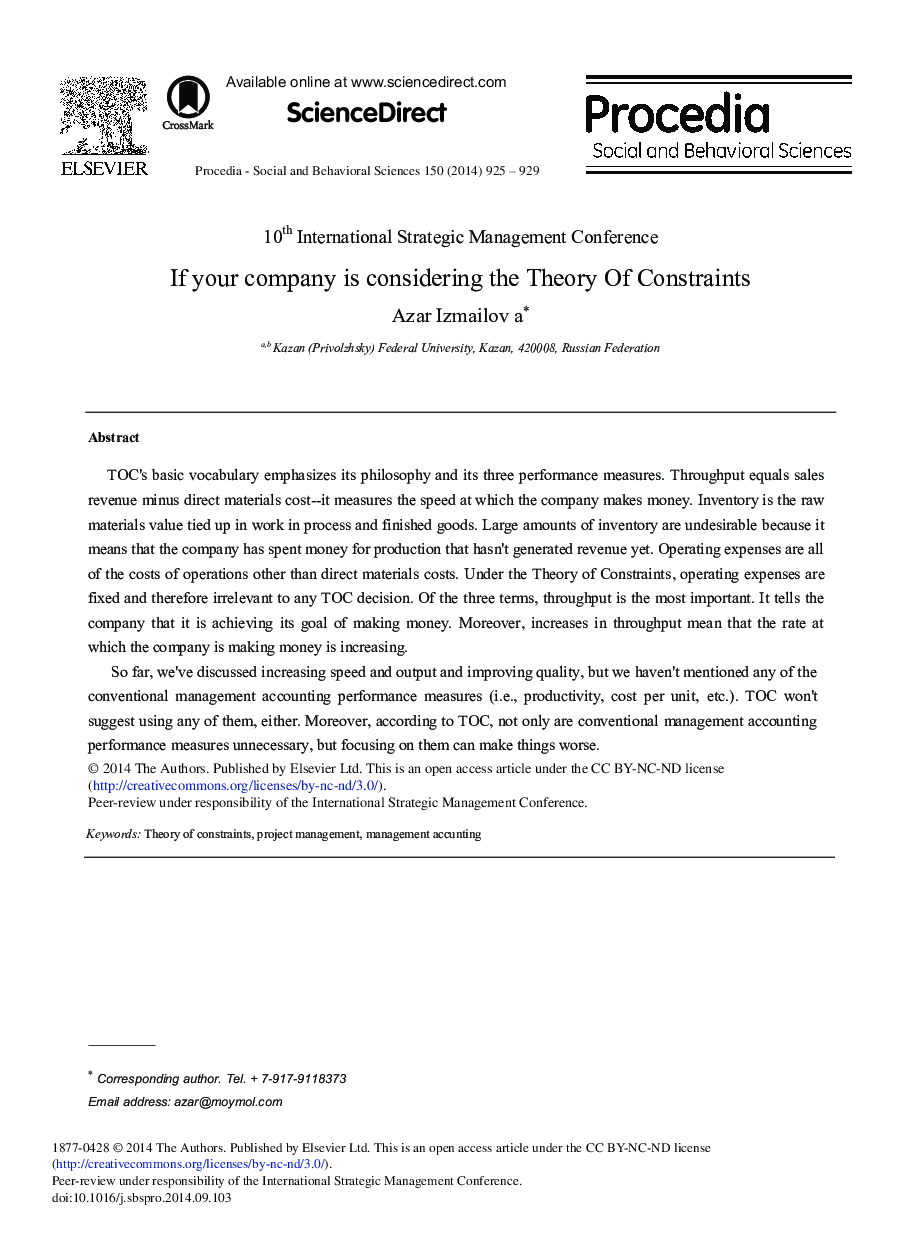| Article ID | Journal | Published Year | Pages | File Type |
|---|---|---|---|---|
| 1113397 | Procedia - Social and Behavioral Sciences | 2014 | 5 Pages |
TOC's basic vocabulary emphasizes its philosophy and its three performance measures. Throughput equals sales revenue minus direct materials cost--it measures the speed at which the company makes money. Inventory is the raw materials value tied up in work in process and finished goods. Large amounts of inventory are undesirable because it means that the company has spent money for production that hasn’t generated revenue yet. Operating expenses are all of the costs of operations other than direct materials costs. Under the Theory of Constraints, operating expenses are fixed and therefore irrelevant to any TOC decision. Of the three terms, throughput is the most important. It tells the company that it is achieving its goal of making money. Moreover, increases in throughput mean that the rate at which the company is making money is increasing.So far, we’ve discussed increasing speed and output and improving quality, but we haven’t mentioned any of the conventional management accounting performance measures (i.e., productivity, cost per unit, etc.). TOC won’t suggest using any of them, either. Moreover, according to TOC, not only are conventional management accounting performance measures unnecessary, but focusing on them can make things worse.
